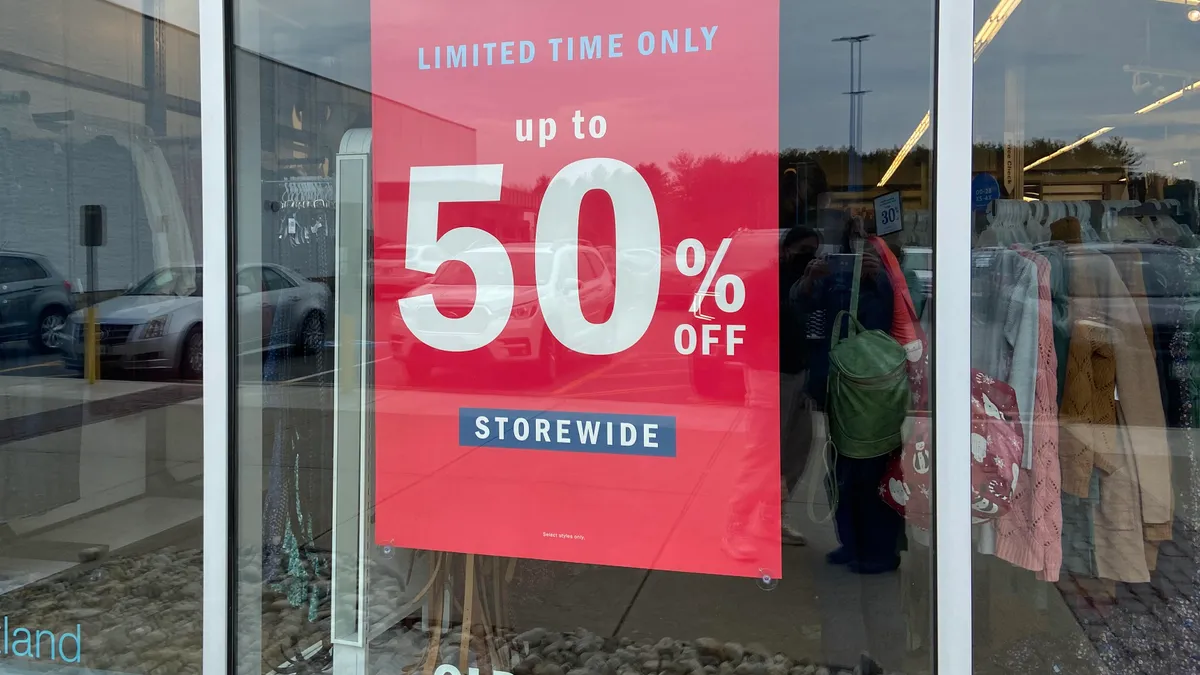In large part thanks to decreases in gasoline prices, inflation eased in December, according to a report Thursday from the U.S. Bureau of Labor and Statistics. In December the Consumer Price Index declined 0.1% month over month on a seasonally adjusted basis, after increasing 0.1% in November, per the report.
Year over year, prices rose 6.5% for the 12 months ending with December, the smallest increase in more than a year. Taking out food and energy prices, inflation was 5.7%, per the report.
It was welcome news for retailers, which have watched consumers grow more careful about spending on discretionary items. The results reflect a 13.9% rise compared to 2020, however, according to GlobalData. Food price inflation slowed month over month but remained at “a still-elevated 11.8%” year over year, according to Wells Fargo analysts.
“Ultimately, this represents a serious erosion in the spending power of average households,” GlobalData Managing Director Neil Saunders said in emailed comments.
Driven by holiday discounting, prices in several categories sold online also fell, according to Adobe Analytics. Online prices in December dropped 1.6% year over year, the fourth straight month of online price declines, per that report. These figures aren’t adjusted for inflation, but stronger consumer spending online “was clearly driven by net-new demand, not simply higher prices,” according to Adobe researchers.
Consumer behavior tracked by GlobalData in December found that squeezed budgets continued to lead 55.2% to buy fewer non-food items. That was down from 59.8% the previous month, likely thanks to the holidays. The number looking for bargains and cheaper alternatives rose sharply, however, per that report.
“In short, Americans are reluctant to allow inflation to disrupt their lifestyles and standards of living, but they also know they need to adjust behaviors and habits to accommodate this,” Saunders said. “The hope for 2023 is that inflation continues on its downward trajectory. However, this is likely to be a slow process which means consumer behaviors will remain choppy and changeable for the foreseeable future.”















